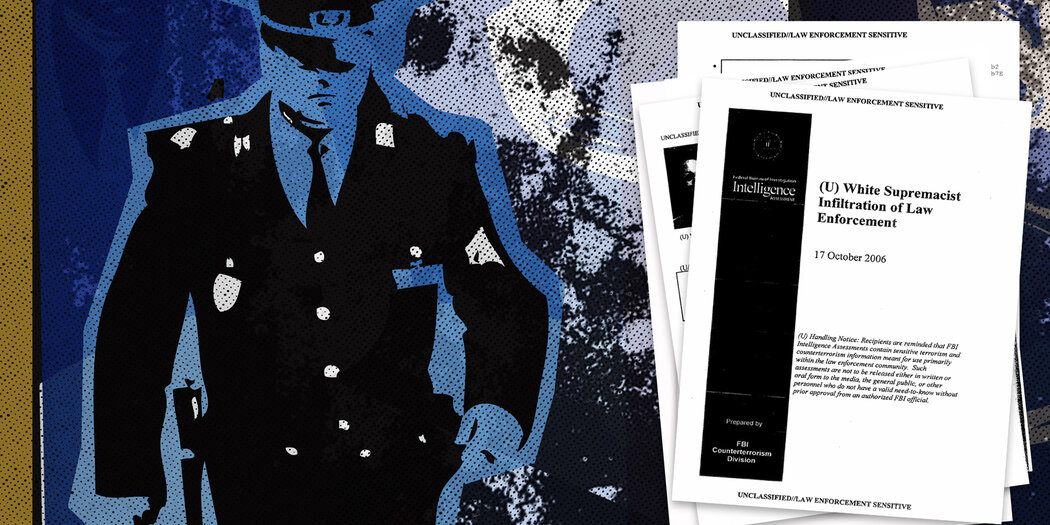Exposing Racism in Law Enforcement: A Detailed Account
Khái niệm cốt lõi
The author highlights the pervasive issue of white supremacy and racism within law enforcement, tracing back to historical events and providing recent examples to support the argument that these problems persist today.
Tóm tắt
The content delves into the deep-rooted problem of racism and white supremacy within law enforcement, citing historical cases like the Mississippi Burning incident and more recent examples of racist behavior among officers. It emphasizes the need for transparency, accountability, and reform within police departments to address these systemic issues effectively.
Tùy Chỉnh Tóm Tắt
Viết Lại Với AI
Tạo Trích Dẫn
Dịch Nguồn
Sang ngôn ngữ khác
Tạo sơ đồ tư duy
từ nội dung nguồn
Xem Nguồn
www.brennancenter.org
Hidden in Plain Sight: Racism, White Supremacy, and Far-Right Militancy in Law Enforcement
Thống kê
In 1996, Los Angeles County paid $9 million in settlements due to a class action civil rights lawsuit against racist sheriff's deputies.
The county has spent about $55 million on lawsuits against alleged members of deputy gangs over the last 10 years.
In 2017, three prison guards were convicted for plotting with KKK members to murder an inmate.
In 2019, Los Angeles County paid $7 million to settle a wrongful death lawsuit against two sheriff’s deputies for shooting an unarmed Black man.
The Greensboro police chief was charged with falsifying records to hire an officer involved in the death of an unarmed Black teenager.
Trích dẫn
"Prosecutors have an important role in protecting the integrity of the criminal justice system from potentially racist officers."
"The landmark Supreme Court ruling requires prosecutors to provide all exculpatory evidence in their possession."
"In some cases, law enforcement officials take no action unless matters become public scandals."
Thông tin chi tiết chính được chắt lọc từ
by Michael Germ... lúc www.brennancenter.org 08-27-2020
https://www.brennancenter.org/our-work/research-reports/hidden-plain-sight-racism-white-supremacy-and-far-right-militancy-law
Yêu cầu sâu hơn
How can police departments ensure transparency and accountability regarding racist behavior among officers?
Police departments can ensure transparency and accountability regarding racist behavior among officers by implementing several key measures. Firstly, they should establish clear policies and procedures for reporting incidents of racism or white supremacist activities within the department. This includes creating a safe space for whistleblowers to come forward without fear of retaliation.
Secondly, conducting thorough background checks on all recruits to identify any ties to hate groups or past instances of discriminatory behavior is crucial. Regular training on diversity, equity, and inclusion should be mandatory for all officers to promote a culture of respect and understanding.
Additionally, creating an independent oversight body or review board composed of community members, legal experts, and law enforcement professionals can help monitor internal investigations into allegations of racism. This external oversight ensures impartiality in addressing complaints against officers.
Lastly, promoting accountability through disciplinary actions such as suspensions, terminations, or criminal charges when warranted sends a strong message that racist behavior will not be tolerated within the department. Publicly disclosing information about these cases demonstrates a commitment to transparency and rebuilding trust with the community.
How can measures be implemented to prevent law enforcement officers with ties to white supremacist groups from securing other jobs?
To prevent law enforcement officers with ties to white supremacist groups from securing other jobs after being dismissed for misconduct related to racism or hate group affiliation, several steps can be taken. Firstly, establishing a national database that tracks officers fired for such reasons would provide valuable information for potential employers during background checks.
Secondly, enforcing strict regulations requiring police departments nationwide to disclose any history of disciplinary action related to racial bias when providing references could deter agencies from hiring problematic individuals. Collaboration between law enforcement agencies at local, state, and federal levels in sharing this critical information is essential.
Furthermore, implementing comprehensive vetting processes during recruitment that include psychological evaluations specifically designed to detect biases towards certain racial or ethnic groups is vital in preventing individuals with extremist ideologies from entering the force.
Regular audits conducted by independent bodies focused on examining hiring practices across different police departments could also help identify gaps in screening procedures that may allow biased individuals back into law enforcement roles.
How can prosecutors effectively address the issue of explicitly racist officers impacting the criminal justice system?
Prosecutors play a crucial role in addressing explicitly racist officers impacting the criminal justice system by taking proactive steps towards accountability and fairness. One key measure is maintaining updated Brady lists containing names of law enforcement officials whose credibility may be compromised due to past misconduct involving racism or hate speech.
Prosecutors should rigorously review cases involving these identified officers while ensuring full disclosure of their backgrounds as required under Brady v. Maryland guidelines. By transparently sharing this information with defense attorneys during trials where these witnesses testify helps uphold integrity within the judicial process.
Moreover,
prosecutors must advocate for legislation mandating regular training sessions focusing on recognizing implicit biases among all members involved in legal proceedings including judges,
lawyers,
and jurors.
This educational approach fosters awareness around how personal prejudices might influence decision-making within courtrooms leading
to fairer outcomes.
By actively engaging with communities affected by racially motivated policing practices,
prosecutors demonstrate their commitment
to combating systemic injustices
and restoring public trust
in
the legitimacy
of
the criminal justice system.
0
